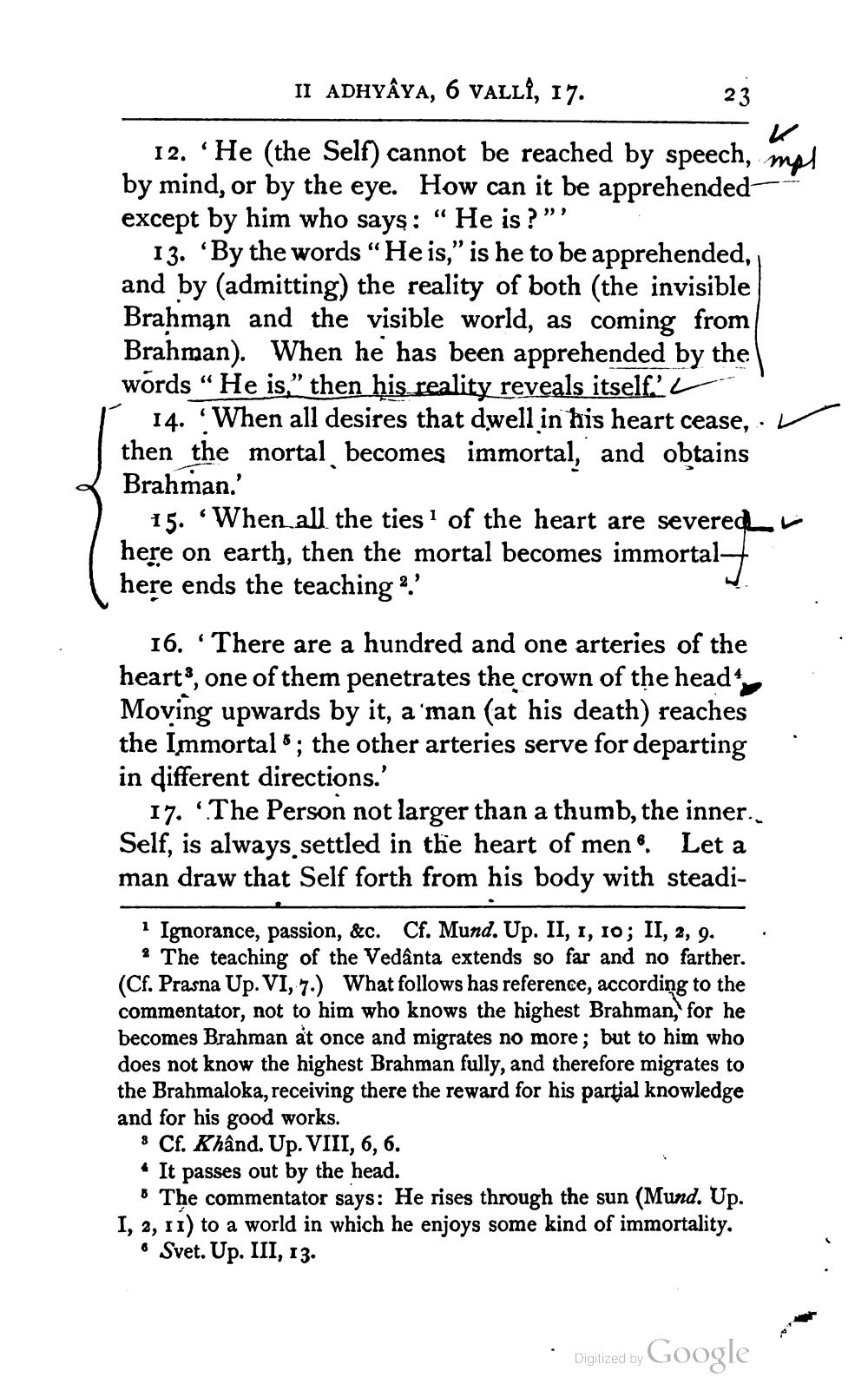________________
II ADHYÂYA, 6 VALLÎ, 17.
23
12. 'He (the Self) cannot be reached by speech, mas by mind, or by the eye. How can it be apprehended except by him who says: "He is ?”
13. ‘By the words “He is," is he to be apprehended, and by (admitting) the reality of both (the invisible Brahman and the visible world, as coming from Brahman). When he has been apprehended by the words “He is,” then his reality reveals itself." ľ 14. When all desires that dwell in his heart cease, -
then the mortal becomes immortal, and obtains < Brahman.
15. “When all the ties of the heart are severe here on earth, then the mortal becomes immortalt here ends the teaching?'
.
16. “There are a hundred and one arteries of the heart', one of them penetrates the crown of the head Moving upwards by it, a 'man (at his death reaches the Immortal *; the other arteries serve for departing in different directions.'
17. 'The Person not larger than a thumb, the inner. Self, is always settled in the heart of men. Let a man draw that Self forth from his body with steadi
.
1 Ignorance, passion, &c. Cf. Mund. Up. II, 1, 10; II, 2, 9.
The teaching of the Vedanta extends so far and no farther. (Cf. Prasna Up. VI, 7.) What follows has reference, according to the commentator, not to him who knows the highest Brahman, for he becomes Brahman at once and migrates no more; but to him who does not know the highest Brahman fully, and therefore migrates to the Brahmaloka, receiving there the reward for his partial knowledge and for his good works.
8 Cf. Khând. Up. VIII, 6, 6. * It passes out by the head.
• The commentator says: He rises through the sun (Mund. Up. I, 2, 11) to a world in which he enjoys some kind of immortality.
• Svet. Up. III, 13.
· Digitized by Google




